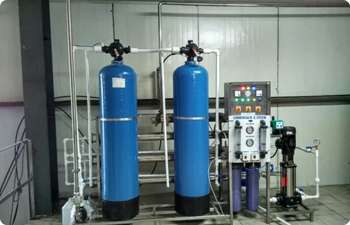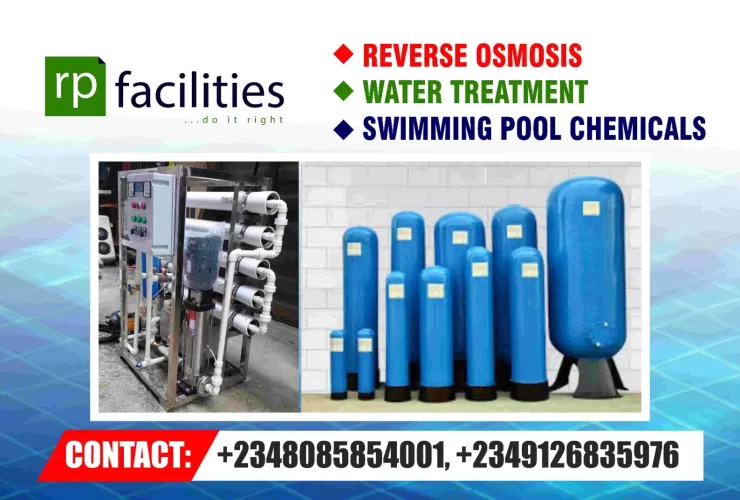Lagos, Nigeria’s bustling commercial hub, is home to over 14 million residents. As the city continues to grow, the demand for clean and safe water has never been more critical. With various challenges, including population density, industrial discharge, and aging infrastructure, effective water treatment is essential for public health and environmental sustainability.
The Importance of Water Treatment
Water treatment is the process of improving the quality of water to make it suitable for specific end-uses, including drinking, irrigation, and industrial applications. In Lagos, the primary goal is to ensure that the water supply is free from common contaminants and safe for consumption. The consequences of inadequate water treatment can be severe, leading to waterborne diseases, environmental degradation, and economic losses.
Current Water Treatment Methods in Lagos
- Surface Water Treatment: Lagos relies heavily on surface water sources, including rivers and lakes. Treatment plants employ various methods such as coagulation, sedimentation, filtration, and disinfection to remove impurities and pathogens.
- Groundwater Treatment: With the increasing reliance on boreholes, groundwater treatment has become vital. This involves removing minerals and contaminants to ensure that the water meets safety standards.
- Aeration systems: This play a vital role in removing dissolved gases and enhancing water quality. Different aeration methods, such as cascade and tower aerators, are utilized to boost oxygen levels and decrease harmful substances. Specific instruments and systems employed in water treatment include cascade aerators, spray aerators, and air bubbling systems. Each of these systems is designed to optimize oxygen addition and facilitate the removal of gases like CO2 during the treatment of drinking water.
- Coagulation, flocculation, and sedimentation: These are processes methods that involve the addition of chemicals (coagulants) to water, which destabilize particles and encourage them to clump together (flocculation). This forms larger aggregates known as flocs that can be easily removed. Following coagulation, the water is allowed to rest in a sedimentation basin, where gravity causes the heavier flocs to settle at the bottom, resulting in clearer water on top.
- Filtration Media which are mainly (sand, gravel, activated carbon) to remove suspended solids, bacteria, and other impurities. Filtration media play a crucial role in the water treatment process, addressing various water quality issues such as organic substances, turbidity, and pH levels. These media come in different materials and sizes, each suited for specific applications.
- Reverse Osmosis (RO): This advanced technology is becoming more prevalent in Lagos, particularly for domestic applications. RO effectively removes dissolved solids, bacteria, and other impurities, providing high-quality water. Water is forced through a semi-permeable membrane that removes dissolved solids, bacteria, and other contaminants, producing purified water.
- Disinfection methods include chlorination, which involves adding chlorine or chlorine compounds to eliminate bacteria and viruses. Another method is UV treatment, which uses ultraviolet light to inactivate microorganisms without introducing chemicals. Ozonation involves applying ozone gas to disinfect water and remove organic contaminants.
Challenges Facing Water Treatment in Lagos
Despite advancements, several challenges hinder effective water treatment in Lagos:
Infrastructure Deficiencies: Aging and inadequate infrastructure often leads to inefficiencies in the water treatment process, resulting in contamination risks. Another infrastructure problem in water treatment in Lagos is the high cost of setting up and maintaining a water treatment plant.
Pollution: Industrial discharge and urban runoff contribute to the pollution of water sources, complicating treatment efforts. Some homes don’t have a decent wastewater and sewage disposal systems especially in Lekki area of Lagos, this has resulted in reported cases of E.coli or Cholera around the City and its environs.
Population Growth: Lagos state being a commercial hub for Nigeria, rapid urbanization increases the demand for water, stressing existing treatment facilities and leading to potential shortages.
Public Awareness: Many residents lack awareness of the importance of water treatment and conservation, which can lead to over-extraction and pollution of water sources.
The Future of Water Treatment in Lagos
To ensure a sustainable water supply, Lagos must invest in modern water treatment technologies and infrastructure. This includes:
- Upgrading Treatment Facilities: Investing in new technologies and upgrading existing plants to enhance efficiency and capacity.
- Public-Private Partnerships: Water treatment in Lagos requires a collaborative effort and government alone cannot meet the current water demands in the city. Collaborating with private entities can bring in expertise and funding to improve water treatment processes.
- Community Education: There is need to train more water treatment professionals and experts and raise awareness of several water treatment courses online and onsite trainings. Raising awareness about water conservation and the importance of clean water can empower residents to participate in sustainable practices.
- Regulatory Frameworks: The organization responsible for water regulation in Lagos is the Lagos State Water Regulatory Commission (LSWRC). This agency oversees the management and regulation of water supply and sanitation services in the state, ensuring that water quality standards are met and that services are provided efficiently and sustainably. Additionally, the Lagos State Water Corporation (LSWC) is responsible for the provision and distribution of water across the state and Lagos State Waste Water Management Office (LSWMO) is responsible for treating and managing wastewater in Lagos, focusing on sewage treatment to remove contaminants and protect public health. Together, these organizations work to improve water management and ensure access to safe drinking water for residents. Strengthening regulations on industrial discharges and promoting responsible water use can help protect water sources.
In summary, water treatment in Lagos is a critical issue that requires immediate attention and action. By investing in modern technologies, upgrading infrastructure, and fostering community awareness, Lagos can ensure a safe and reliable water supply for its residents. At RP Facilities, we are committed to supporting initiatives that promote effective water treatment solutions, contributing to a healthier and more sustainable future for Lagos.



